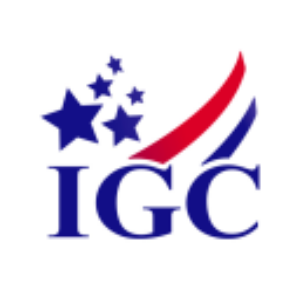IGC Pharma Expands Drug Portfolio to Metabolic Disorders with IGC-1A, A Potential New GLP-1 Agonist
- Artificial Intelligence Modelling Reveals New Possibilities for Metabolic and Neurological Therapies -
Identifying IGC-1A as a potential GLP-1 agonist marks a significant milestone for IGC Pharma, presenting a substantial market opportunity and improving patient care for various conditions. GLP-1 (glucagon-like peptide-1) is a powerful hormone known for its dual role in managing blood sugar levels and promoting weight loss. As GLP-1 agonists gain traction for their effectiveness in treating type 2 diabetes and aiding weight management by increasing satiety and reducing appetite, they are also being explored for their neuroprotective benefits. This could potentially revolutionize treatments for Alzheimer's disease by addressing inflammation and oxidative stress, offering a multifaceted approach to improving patient outcomes.
Ram Mukunda, CEO of IGC Pharma, commented, "Our AI-driven approach has revealed a promising opportunity for IGC-1A and IGC-1C to be potential GLP-1 agonists. This discovery strengthens our Alzheimer's treatment portfolio and also positions us to potentially enter the rapidly growing weight loss market. By comparing IGC-1A and IGC-1C with established drugs such as Ozempic, Tirzepatide, Retatrutide, and Metformin, among others, our AI model indicates that they could become an effective option for metabolic disorders. While we are in the early stages, our molecules allow us to potentially build a portfolio that also focuses on metabolic disorders and obesity with improved tolerability and efficacy compared to current options.
"As we advance toward further validation through clinical trials, we see substantial growth potential in developing innovative treatments that address metabolic and neurodegenerative conditions. Additionally, investigations into IGC-1A have revealed its potential as a GLP-1 agonist, GIP agonist, and a CB1r inverse agonist, opening new avenues for potentially impactful therapies in weight management, neurological disorders, and metabolic disorders."
In 2024, IGC Pharma anticipates progressing toxicology and dosing studies in preparation for submitting an Investigational New Drug Application for IGC-1A to the FDA although there can be no assurance thereof. IGC Pharma's potential strategic expansion to metabolic disorders underscores the Company's commitment to leveraging advanced AI technology to drive innovation and develop impactful solutions that create substantial value for investors.
About IGC Pharma (dba IGC):
IGC Pharma is an AI-powered, clinical-stage biotechnology company focused on developing innovative treatments for Alzheimer's disease and transforming patient care with fast-acting, safe, and effective solutions. Our portfolio includes the TGR family, including TGR-63, which targets amyloid plaques, a hallmark of Alzheimer's. The IGC-C and IGC-M platforms are advancing in preclinical studies, focusing on metabolic disorders, tau proteins, early plaque formation, and multiple disease hallmarks. Our lead therapeutic candidate, IGC-AD1, is a cannabinoid-based treatment currently in a Phase 2 trial for agitation in dementia associated with Alzheimer's (clinicaltrials.gov, NCT05543681). Interim data for IGC-AD1 demonstrated that it has the potential to transform patient care by offering faster-acting and more effective relief compared to traditional medications. Additionally, our AI models are designed to predict potential biomarkers for the early detection of Alzheimer's, optimize clinical trials, and predict receptor affinity, among others. With 28 patent filings and a commitment to innovation, IGC Pharma is dedicated to advancing pharmaceutical treatments and improving the lives of those affected by Alzheimer's and related conditions.
Forward-looking Statements
This press release contains forward-looking statements. These forward-looking statements are based largely on IGC Pharma's expectations and are subject to several risks and uncertainties, certain of which are beyond IGC Pharma's control. Actual results could differ materially from these forward-looking statements as a result of, among other factors, the Company's failure or inability to commercialize one or more of the Company's products or technologies, including the products or formulations described in this release, or failure to obtain regulatory approval for the products or formulations, where required, or government regulations affecting AI or the AI algorithms not working as intended or producing accurate predictions; general economic conditions that are less favorable than expected; the FDA's general position regarding cannabis- and hemp-based products; and other factors, many of which are discussed in IGC Pharma's
View source version on businesswire.com: https://www.businesswire.com/news/home/20240820622433/en/
IMS Investor Relations
Rosalyn Christian / Walter Frank
igc@imsinvestorrelations.com
(203) 972-9200
Source: IGC Pharma









